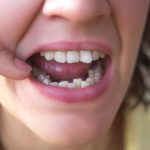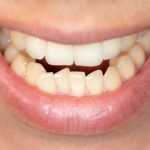Expert Advice: How Often Should You Get Your Dog’s Teeth Cleaned?
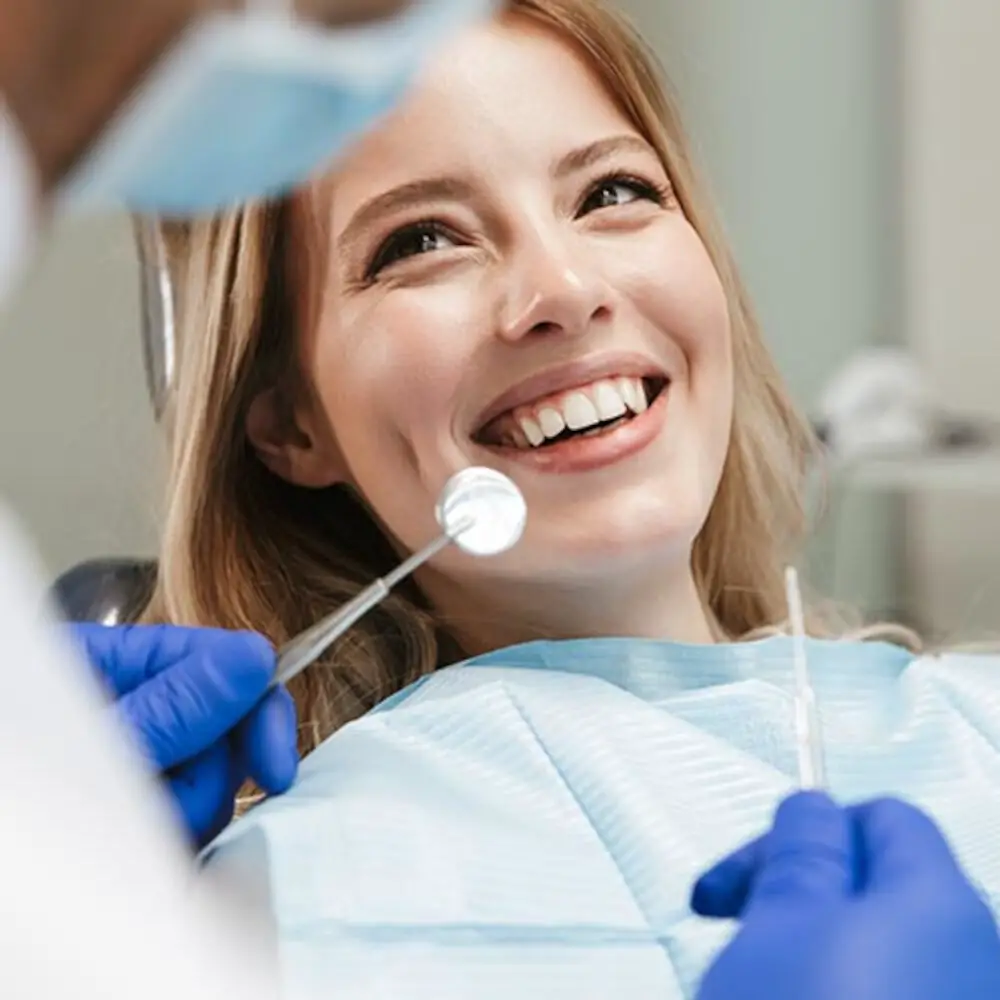
Maintaining good oral hygiene for your furry friend is as important as it is for us humans. Dogs are susceptible to various dental problems, including plaque buildup, bad breath, and gum disease. Preventing these issues requires regular teeth cleaning and dental check-ups. But how often should you get your dog’s teeth cleaned, and what are the signs that your pooch needs a dental check-up?As a pet owner, it’s crucial to understand the importance of dental care for your four-legged friend. Neglecting your dog’s dental health can lead to severe health issues, including infections, tooth loss, and even heart disease. Regular teeth cleaning and dental check-ups are necessary to maintain your dog’s overall health and well-being. In this article, we’ll explore how often you should get your dog’s teeth cleaned, the signs of dental problems, and tips for maintaining good oral hygiene for your furry friend.
Maintaining good dental hygiene in dogs is crucial for their overall health and well-being. Regular teeth cleaning can prevent gum disease, tooth decay, and bad breath. Dental issues can also cause pain and discomfort, which can impact a dog’s appetite and behavior. Additionally, bacteria from dental problems can spread to other parts of the body, leading to more serious health issues such as heart, liver, and kidney problems. Therefore, it is essential for dog owners to prioritize dental care for their furry friends by regularly brushing their teeth and scheduling professional cleanings as recommended by their veterinarian.
The purpose of this article is to provide expert advice on the frequency at which a dog’s teeth should be cleaned. The article emphasizes the importance of dental hygiene for dogs to prevent the development of serious health issues such as gum disease, tooth decay, and infections. The article provides tips on how to care for a dog’s teeth, including brushing, using dental chews, and regular vet check-ups. The article highlights the importance of starting a dental routine early on in a dog’s life to ensure long-term dental health. Overall, the article serves as a guide for dog owners on how to maintain their pet’s dental hygiene and keep them healthy and happy.
Understanding a Dog’s Dental Health
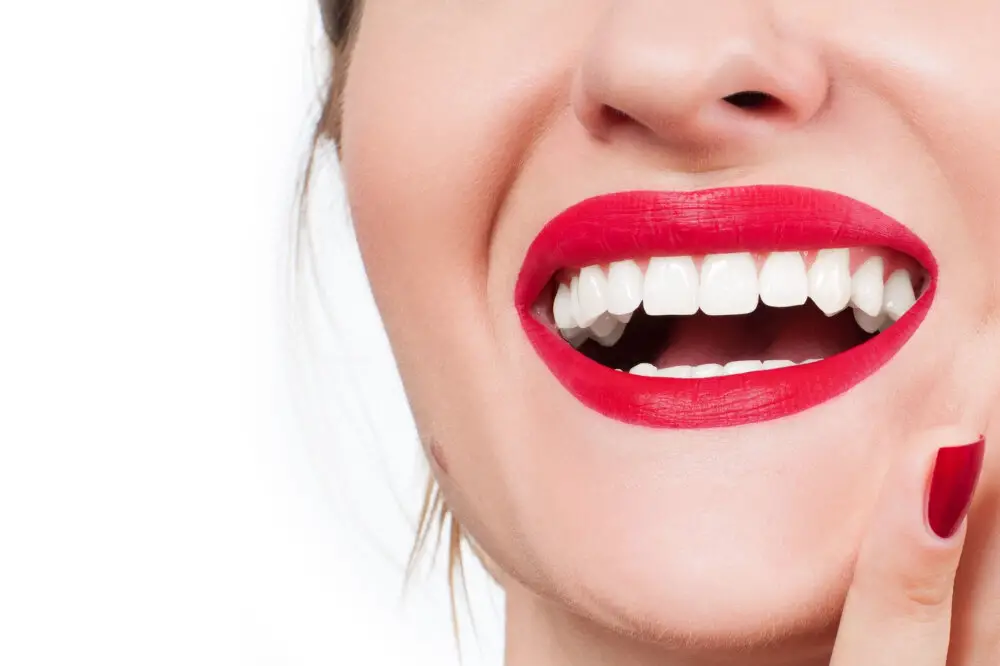
Dental health is as important for dogs as it is for humans. Just like us, dogs can suffer from gum disease, tooth decay, and bad breath. Therefore, it is essential to understand the basics of a dog’s dental health to ensure their overall well-being. A dog’s dental health can be maintained by regular cleaning, nutritious diet, and visits to the veterinarian. Regular cleaning is the foundation of a dog’s dental health. Brushing their teeth at home can help prevent plaque buildup and tooth decay. It is recommended to brush your dog’s teeth daily, but at least 2-3 times a week. Additionally, giving your dog dental chews and toys or incorporating dental treats into their diet can help keep their teeth clean and healthy. However, it is important to avoid giving them hard bones or objects that can cause tooth fractures. These simple measures can prevent dental problems and save your dog from painful complications. Therefore, it is crucial to make dental care a part of your dog’s daily routine.
A dog’s mouth is comprised of various structures that work together to help them chew and digest their food. The teeth of a dog are one of the most critical components of their mouth, with four different types of teeth located in their jaws. These include their incisors, canines, premolars, and molars, all of which serve a specific purpose in their mouths. Their incisors are used for grabbing and holding onto food, while their canines are used for tearing and shredding. The premolars and molars are used for grinding and crushing their food. Additionally, a dog’s mouth contains saliva, which helps to break down food and prevent the buildup of bacteria in their mouths. When it comes to dental health, it’s essential to keep a close eye on your dog’s teeth and schedule regular cleanings with a veterinarian to ensure their teeth remain healthy and free of decay or disease.
Dental problems are one of the most common health issues that dogs face, and they can be incredibly painful and debilitating if left untreated. Some of the most common dental problems in dogs include periodontal disease, which is caused by the buildup of plaque and tartar on the teeth and gums, and can lead to tooth loss, gum disease, and even systemic infections. Other common dental issues include broken or cracked teeth, abscesses, and oral tumors. Regular dental checkups and cleanings are crucial for preventing and treating these issues, and can help to keep your dog’s teeth and gums healthy and pain-free.
Signs That Your Dog Needs Dental Cleaning

Dental cleaning is a crucial aspect of a dog’s overall health and hygiene. However, not many pet owners understand the importance of regular dental cleaning. Your dog’s dental health is as important as their physical health, and it is essential to look out for signs that your dog needs dental cleaning. One of the most common signs that your dog needs dental cleaning is bad breath. If your dog has bad breath, it is a clear indication that they have plaque buildup or gum disease. Other signs to watch out for include yellow or brown teeth, bleeding gums, loose teeth, difficulty eating or chewing, and excessive drooling. It is essential to take your dog for dental cleaning at least once a year, and more frequently if they have dental issues. Regular dental cleaning helps prevent dental diseases and ensures that your dog’s teeth and gums remain healthy. It is also crucial to brush your dog’s teeth regularly to maintain their dental hygiene. You can use a toothbrush and toothpaste designed specifically for dogs to clean their teeth. Additionally, you can give your dog dental chews or toys to help keep their teeth clean and healthy. Remember, regular dental cleaning is critical to your dog’s overall health, and it is essential to take care of their dental hygiene to ensure a long and healthy life.
Dental problems are quite common in dogs, and it is essential to identify the symptoms to take appropriate action. One of the most apparent signs of dental problems is bad breath. Any foul odor from your dog’s mouth can indicate an underlying issue. Other symptoms include difficulty eating or chewing, bleeding gums, loose teeth, and swollen or inflamed gums. In severe cases, dogs may also drool excessively or develop abscesses on their gums. Regular dental check-ups and cleanings can help prevent these issues from becoming severe, ensuring that your furry friend has healthy teeth and gums.
Dental disease is a common problem in dogs that can lead to pain, infection, and even tooth loss. The different stages of dental disease in dogs include gingivitis, where the gums become inflamed and swollen due to the buildup of plaque and tartar; periodontitis, where the infection spreads to the tooth root and surrounding bone, causing tooth loss and bone damage; and advanced periodontitis, where the infection can spread to other parts of the body, such as the heart and kidneys, leading to serious health problems. Regular dental cleanings and at-home dental care can help prevent and treat dental disease in dogs.
It is recommended to take your dog for a professional dental cleaning at least once a year, but some dogs may require more frequent cleaning depending on their individual needs. Regular cleanings can help prevent dental disease, bad breath, and tooth loss. Signs that your dog may need a cleaning include bad breath, yellow or brown teeth, and swollen or bleeding gums. Additionally, older dogs and those with certain medical conditions may require more frequent dental cleanings. It is important to consult with your veterinarian to determine the appropriate frequency of cleanings for your dog’s individual needs.
How Often Should You Get Your Dog’s Teeth Cleaned?
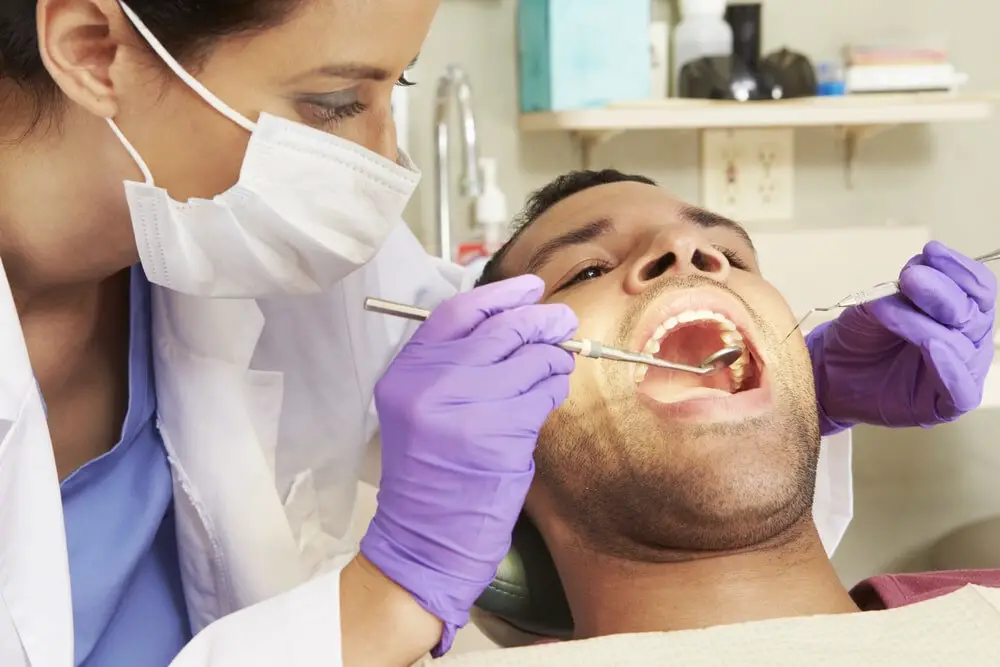
As a responsible pet owner, you must take care of your furry friend’s dental hygiene. Dental problems such as plaque, tartar, gum disease, and tooth decay are common in dogs. These issues can lead to severe health problems, including infections, difficulty eating, and even heart disease. Therefore, it is essential to get your dog’s teeth cleaned regularly. The frequency of cleaning depends on several factors, including age, breed, and diet. Most dogs require dental cleaning once a year, while others may need it more frequently. Puppies should start getting their teeth cleaned as soon as they get their adult teeth. This process helps them get used to the procedure, making it easier for them in the future. Moreover, puppies are more prone to dental problems due to their teething stage. As for adult dogs, their dental cleaning frequency depends on their breed and diet. Larger breeds tend to have more dental problems than smaller breeds. If your dog’s diet consists of soft or wet food, they may require more frequent cleaning than dogs that eat dry food. Therefore, it is best to consult your veterinarian to determine the appropriate frequency of dental cleaning for your dog.
When determining the frequency of dental cleanings for your dog, there are several factors to consider. Firstly, the age and breed of your dog can play a significant role in how often they require cleanings. Older dogs and certain breeds such as small dogs and brachycephalic breeds may require more frequent dental cleanings. Additionally, the overall health of your dog’s teeth and gums should be evaluated by a veterinarian to determine the appropriate cleaning schedule. Other factors to consider include your dog’s diet, chewing habits, and history of dental issues. By taking these factors into account, you can determine the most appropriate frequency for your dog’s dental cleanings to ensure their continued oral health.
It is essential to maintain good dental hygiene for your dog to prevent dental diseases and ensure overall health. The frequency of dental cleanings depends on various factors such as age, breed, and dental health. Puppies and senior dogs may require more frequent dental cleanings as they are prone to dental problems. Breeds with shorter snouts and crowded teeth are also at high risk of dental issues and may need more dental cleanings. Dogs with healthy teeth and gums may only need an annual dental cleaning, while dogs with dental problems may require more frequent cleanings. Consult your veterinarian to determine the appropriate frequency of dental cleanings for your dog based on their individual needs.
AtHome Dental Care for Dogs
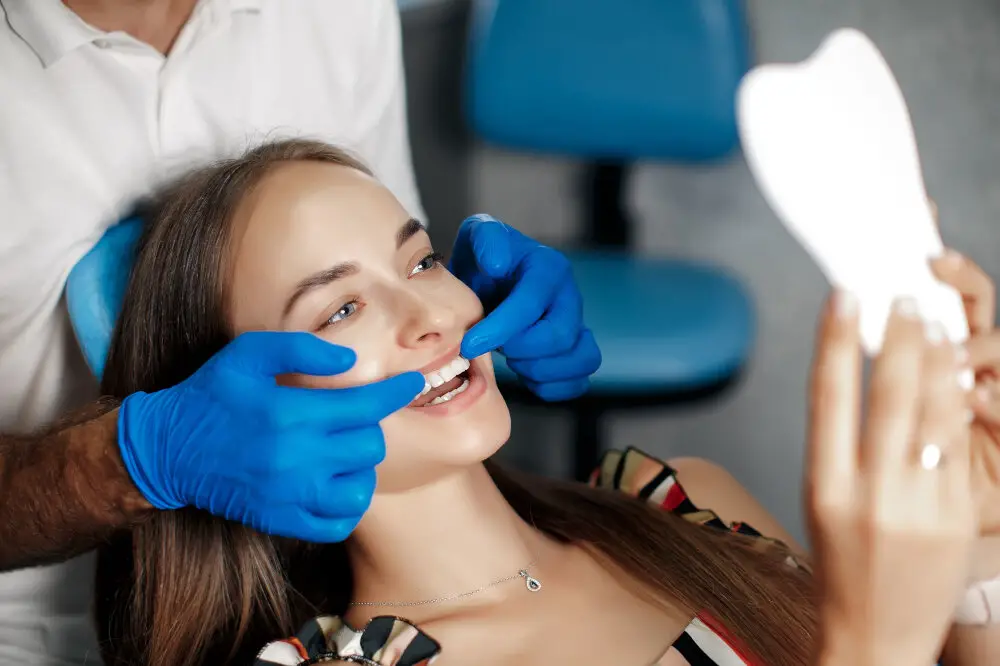
Proper dental care is crucial for the overall health and well-being of your furry friend. While regular visits to the veterinarian for professional cleaning are recommended, at-home dental care for dogs is equally important. This not only helps maintain their dental hygiene but also prevents the development of periodontal diseases, which can lead to serious health issues such as heart, liver, and kidney diseases. At-home dental care for dogs includes brushing their teeth, using dental chews, and adding dental water additives to their drinking water. Regular dental care routine at home can help keep your dog’s teeth healthy, strong, and free of tartar and plaque. Brushing your dog’s teeth is the most effective way to remove plaque and bacteria from their teeth. Use a toothbrush specifically designed for dogs and a pet-safe toothpaste. Start by getting your dog used to the toothbrush and toothpaste by allowing them to taste the toothpaste and gently rubbing the toothbrush around their mouth. Gradually, you can start brushing their teeth in a circular motion, focusing on the outer surfaces of their teeth. You should brush your dog’s teeth at least two to three times a week to maintain their dental hygiene. Dental chews and water additives are also great options to help reduce plaque and tartar buildup in your dog’s teeth. However, it’s essential to remember that these are supplements to regular brushing and should not replace it altogether.
Regular at-home dental care for dogs is crucial for maintaining their overall health and well-being. Just like humans, dogs can develop dental problems such as tartar buildup, gum disease, and tooth decay. These issues can lead to pain, infection, and even tooth loss if left untreated. Additionally, poor dental hygiene can also contribute to other health problems such as heart disease and kidney disease. By establishing a routine of brushing your dog’s teeth and providing them with dental chews or toys, you can help prevent these issues and ensure that your furry friend has a healthy, happy life.
Maintaining your dog’s dental health is essential to ensure their overall well-being. Between professional cleanings, there are several tips to keep your pup’s teeth healthy. Firstly, brush your dog’s teeth regularly with a toothbrush and toothpaste specially designed for dogs. You can also provide dental chews or toys that help remove plaque and tartar buildup. Additionally, avoid giving your dog sugary or starchy treats, as they can contribute to dental problems. Finally, schedule regular check-ups with your veterinarian to detect any signs of dental issues early on. By following these tips, you can help your furry friend maintain healthy teeth and gums between professional cleanings.
In the article \Expert Advice: How Often Should You Get Your Dog’s Teeth Cleaned,\ the author discusses the importance of dental hygiene for dogs and how often they should have their teeth cleaned. The article highlights the fact that dental problems are one of the most common health issues among dogs, and poor dental hygiene can lead to serious health problems. The author recommends that dogs should have their teeth cleaned by a veterinarian at least once a year, but ideally twice a year. Additionally, the article provides tips and advice on how to maintain good dental hygiene for dogs at home, including brushing their teeth regularly and providing them with dental chews and toys. Overall, the article emphasizes the importance of regular dental cleanings and good dental hygiene practices for dogs to ensure their overall health and well-being.
Dental hygiene is crucial for dogs, just as it is for humans. Maintaining healthy teeth and gums is not only essential for preventing bad breath, but it also plays a significant role in a dog’s overall health and well-being. Poor dental hygiene can lead to serious health issues such as gum disease, tooth decay, and even organ damage. Regular cleaning and care of your dog’s teeth can prevent these problems and ensure that your furry friend has a healthy and happy life. As a responsible pet owner, it is imperative to make sure your dog receives proper dental care, including regular cleanings and check-ups with a veterinarian.
Maintaining good dental health in dogs is an essential aspect of their overall well-being. Regular dental cleanings are crucial for keeping their teeth and gums healthy and preventing dental diseases. It is recommended that dogs receive professional dental cleanings at least once a year, but some may require more frequent cleanings. In addition to professional cleanings, owners should also make an effort to maintain their dog’s dental health at home by regularly brushing their teeth and providing them with dental chews or toys. By taking these steps, owners can help ensure that their furry friend’s teeth remain healthy and strong, which can ultimately lead to a longer and happier life for their beloved pet.
Conclusion
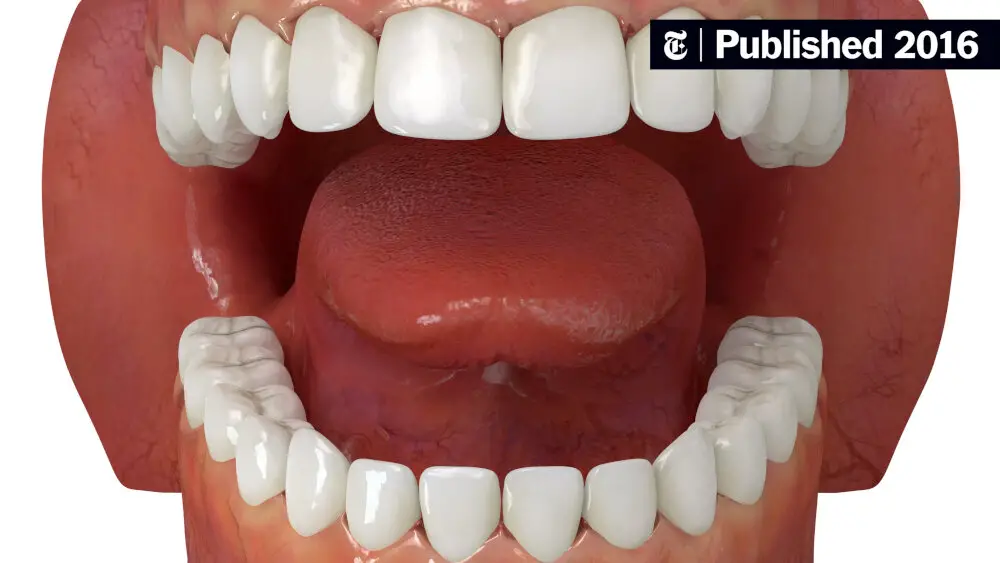
In conclusion, maintaining good oral hygiene for your furry friend is crucial for their overall health and well-being. Regular dental check-ups and professional cleanings, along with daily brushing and healthy eating habits, can help prevent serious dental issues and expensive treatments. The frequency of dental cleanings may vary depending on the dog’s breed, age, and individual needs, but consulting with a veterinarian and establishing a dental care routine is essential. Neglecting dental care can lead to painful dental diseases and infections, which can negatively impact the dog’s quality of life. Therefore, it’s important to make dental care a priority in your dog’s healthcare routine to ensure they have a healthy and happy life.
